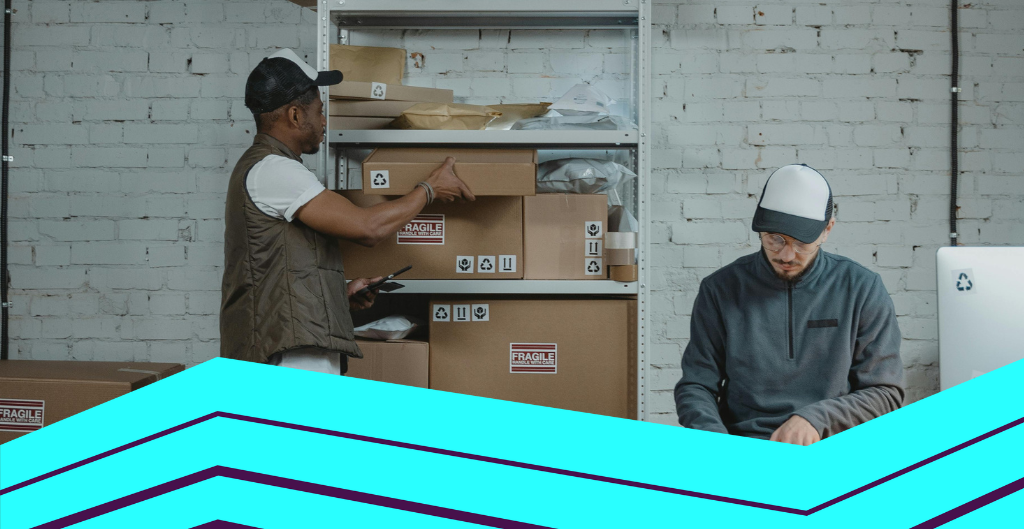Markese Redding is a a Senior New Markets Partner Strategist, supporting HR leaders through strategic partnerships and growth initiatives. Markese earned both a BA and an MBA from Loyola University Maryland, where he was a dedicated Division I basketball player. His commitment to social justice began during college, where he was a founding member of Student Athletes for Social Justice and served as a member of the Patriot League Social Justice Coalition and Black Student Association (BSA).
Now residing in New York City, Markese spends his free time coaching high school basketball and empowering underprivileged youth.
Think Bigger: Supplier Diversity Strategies to Fuel Business Innovation in 2025

In today’s society, inclusivity goes beyond internal efforts; it’s a shared value among employees, customers, and communities. Similarly, DEI initiatives must be expanded to demonstrate how organizations engage with the outside world, including in their supply chains.
Supplier diversity invites businesses owned by diverse groups into corporate supply chains, helping to drive innovation and economic growth. These businesses represent half of all companies in the United States, and their inclusion offers a strategic advantage that directly impacts business outcomes. By aligning DEI goals with external partnerships, organizations strengthen their brand, deepen stakeholder relationships, and position themselves as leaders in driving lasting, meaningful change.
Ready to start or expand your supplier diversity program? Check out these expert tips from supplier diversity leaders at Wayfair and Southwest Gas:
1. Fostering Success with Tailored Supplier Support
Wayfair, a home goods powerhouse, exemplifies how supplier diversity can address business needs and create an inclusive customer experience. Wayfair saw an opportunity to support diverse suppliers while filling product gaps as a company that focuses on sourcing rather than manufacturing products. Their vision was to create an inclusive shopping experience that reflected their customers’‘ diverse needs, preferences, and identities.
In 2023, Wayfair launched its Supplier Diversity Support Program to further this vision. The program provides hands-on support to suppliers, offering a dedicated manager who helps with tasks ranging from crafting compelling product descriptions to improving operational efficiency. Wayfair also offers a tool called Wayfair Preferred, which provides suppliers with insights into trending products in the marketplace.
Wayfair’s Celebrate Black Makers initiative further emphasizes inclusion, supporting Black-owned businesses through curated landing pages, shopping filters, and tailored shopping experiences. But Wayfair’s commitment goes beyond just partnering with suppliers. Wayfair actively works to refine its operations, boost visibility, and provide the tools and insights needed for suppliers to succeed in the competitive marketplace. This approach underscores that supplier diversity is not just about representation—it is about empowering suppliers to grow, compete, and thrive.

2. Aligning Strategy and Leadership for Supplier Diversity Impact
Utilities company Southwest Gas demonstrates how supplier diversity efforts can be expanded to drive an even greater impact. When the Super Bowl came to their hometown, Southwest Gas saw an opportunity to enhance its supplier diversity program. The NFL’s Business Connect program creates opportunities for diverse suppliers to support the Super Bowl, but certification often poses a hurdle for small businesses.
To address this hurdle, Southwest Gas launched a program to help suppliers gain certification and participate in Super Bowl activities. By recognizing this gap and taking action, Southwest Gas empowered diverse businesses to seize new opportunities and showcased a proactive approach that required significant effort and strategic alignment with leadership to achieve success.
Delayed is not Denied
– Courtney MoorE, Director, DE&I/Chief of Staff to VP Human Resources, Southwest Gas
Courtney Moore, Director, DE&I/Chief of Staff to VP Human Resources at Southwest Gas, played a critical role in gaining leadership buy-in. Instead of immediately pitching the idea, Moore took a proactive approach by engaging key stakeholders across departments to ensure the initiative aligned with Southwest Gas’s business objectives. This step was key to securing internal support. Even after gaining initial backing, leadership deliberated on the appropriate investment and scope of the initiative. Moore remained adaptable, adjusting the proposal based on feedback to keep the project moving forward.
The result was a groundbreaking partnership that not only expanded Southwest Gas’‘s supplier base but also empowered small, diverse businesses to collaborate with a global brand like the NFL. This commitment to supplier diversity immediately impacted their ROI, with a remarkable 31x return on their initial investment, $4.7 million in PR value, and 528K impressions generated through their Business Connect program. These statistics underscore the broader benefits of supplier diversity—stronger financial returns, increased brand visibility, and broader engagement—all directly contributing to business growth. Southwest Gas’s success illustrates the importance of creativity, persistence, and leadership alignment in making supplier diversity a powerful tool for innovation. By thinking outside the box and investing in up-front planning, the company was able to create a lasting impact that went beyond merely adding vendors.
3. Expanding Supplier Diversity Across All Industries
Supplier diversity is often associated with consumer-facing industries, but it’s a valuable strategy for organizations in every sector, including B2B. Many B2B companies assume supplier diversity doesn’t apply to them because they aren’t producing or selling physical products, but that mindset overlooks significant opportunities to diversify their supply chains. Regardless of industry, every business relies on both goods and services—and both present pathways to build a more inclusive procurement strategy.
Even B2B companies that don’t manufacture or sell physical products purchase items to support their operations. Office supplies, marketing materials, employee appreciation gifts, and other everyday goods are essential parts of doing business, and sourcing these from diverse suppliers is a straightforward way to make an impact. By broadening the pool of vendors you work with, you can meet your business needs while contributing to broader diversity and equity goals.
Services are another area where B2B companies can integrate supplier diversity into their operations. From marketing and IT infrastructure to HR platforms and cybersecurity, businesses often rely on external partners to provide critical expertise. Partnering with diverse vendors for these services not only strengthens your business through innovation and specialized solutions but also fosters inclusion and equity in your extended supply chain.
Every B2B business is different, and each will approach supplier diversity in its own way. By seeking out diverse suppliers for both goods and services, B2B companies can tap into the benefits of a more inclusive approach.
The Future of Supplier Diversity
The stories from Wayfair and Southwest Gas show that supplier diversity is not just about meeting quotas—it’s a powerful strategy for innovation, inclusivity, and economic opportunity. By embracing supplier diversity, companies position themselves as leaders in creating a more equitable business environment while also driving their business value.
As supplier diversity programs continue to evolve, the focus will likely shift toward deeper collaborations, innovative approaches, and solutions that address emerging challenges in the global supply chain. The future of DEI in business lies in the ability to build partnerships that are not just inclusive but transformational, helping companies meet today’s expectations while shaping a more equitable future.
Ready to launch or elevate your strategy?
Join the many organizations like Wayfair and Southwest Gas already unlocking the power of supplier diversity. Contact Seramount for expert guidance and more peer insights on supplier diversity initiatives or watch the on-demand webinar to explore these insights and more.




